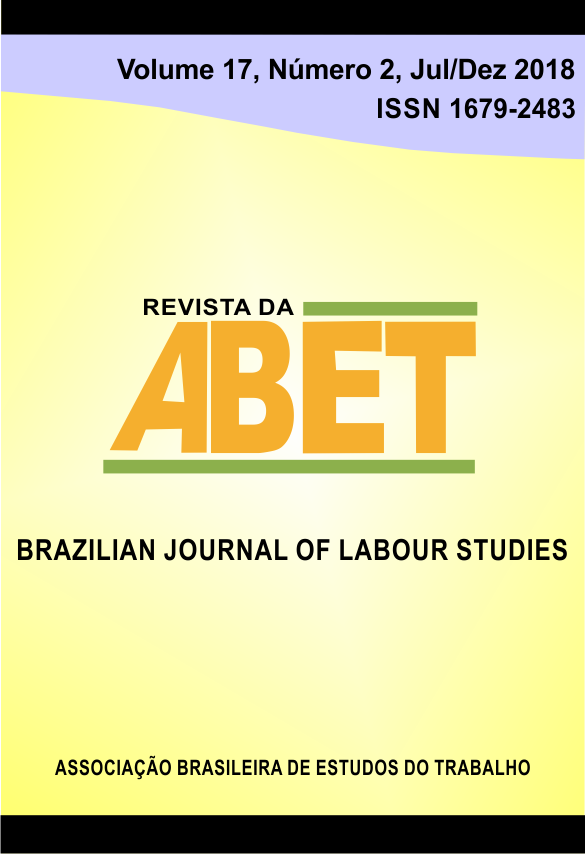FOLLOW THE WOMEN: NEW FORMS OF ORGANISING?
DOI:
https://doi.org/10.22478/ufpb.1676-4439.2018v17n2.44619Abstract
In the face of globalised neoliberal capitalism and the allied rise in precarious working, there comes an increased focus on the position of women at work, including migrant women. Women have long been familiar with the conditions of precarity, and their vulnerability calls for increased protection through collective solidarity and trade union organising. Yet they are just the workers that traditional ‘pale, male, stale’ unions designate as difficult to reach and uneconomic to organise. In reality it is the rigidity of bureaucratic masculinised labour unions which are insufficiently flexible and cannot or will not respond to the needs and work patterns of 50% of the workforce. So, it falls to women themselves to find other ways of organising while at the same time pressing traditional unions to respond to their demands. Social movement unionism, especially in the global South shows how this can be done. And at local level, there are increasing examples of women organising in their communities, in ethnic and religious enclaves. In this paper key issues are examined and examples shown of women’s organising, such as the International Domestic Workers Federation; the first global union organisation in the world run by women. A women’s vanguard can be seen to lead the way in new ways of organising.
Downloads
Metrics
Downloads
Published
How to Cite
Issue
Section
License
Política de Acesso Livre
Esta revista oferece acesso livre imediato ao seu conteúdo, seguindo o princípio de que disponibilizar gratuitamente o conhecimento científico ao público proporciona maior democratização mundial do conhecimento.
Atribuição dos artigos é não comercial (sem derivações 4.0, isto é, Creative Commons) e o acesso é livre e gratuito para download e leitura.
Não há taxa para submissão, avaliação e publicação de artigos.
Copyright
1) Os artigos são de responsabilidade exclusiva dos autores. É permitida sua reprodução, total ou parcial desde que seja citada a fonte.
2) Os trabalhos enviados para publicação devem ser inéditos, não sendo permitida sua apresentação simultânea em outro periódico nacional.
3) Os artigos são submetidos a pareceristas "ad hoc", após prévia avaliação da Comissão Editorial, os quais podem aceitar, recusar ou reapresentar o original ao autor com sugestões para alterações. Os nomes dos pareceristas permanecem em sigilo, bem como os nomes dos autores.
Os Autores que publicam nesta revista concordam com os seguintes termos:
Autores mantêm os direitos autorais e concedem à revista o direito de primeira publicação, com o trabalho simultaneamente licenciado sob a Creative Commons Attribution License, permitindo o compartilhamento do trabalho com reconhecimento da autoria do trabalho e publicação inicial nesta revista.
Autores têm autorização para assumir contratos adicionais separadamente, para distribuição não-exclusiva da versão do trabalho publicada nesta revista (ex.: publicar em repositório institucional ou como capítulo de livro), com reconhecimento de autoria e publicação inicial nesta revista.
Autores têm permissão e são estimulados a publicar e distribuir seu trabalho online (ex.: em repositórios institucionais ou na sua página pessoal), já que isso pode gerar alterações produtivas, bem como aumentar o impacto e a citação do trabalho publicado.
Patrocinador
A publicação recebe financiamento da Associação Brasileira de Estudos do Trabalho.










